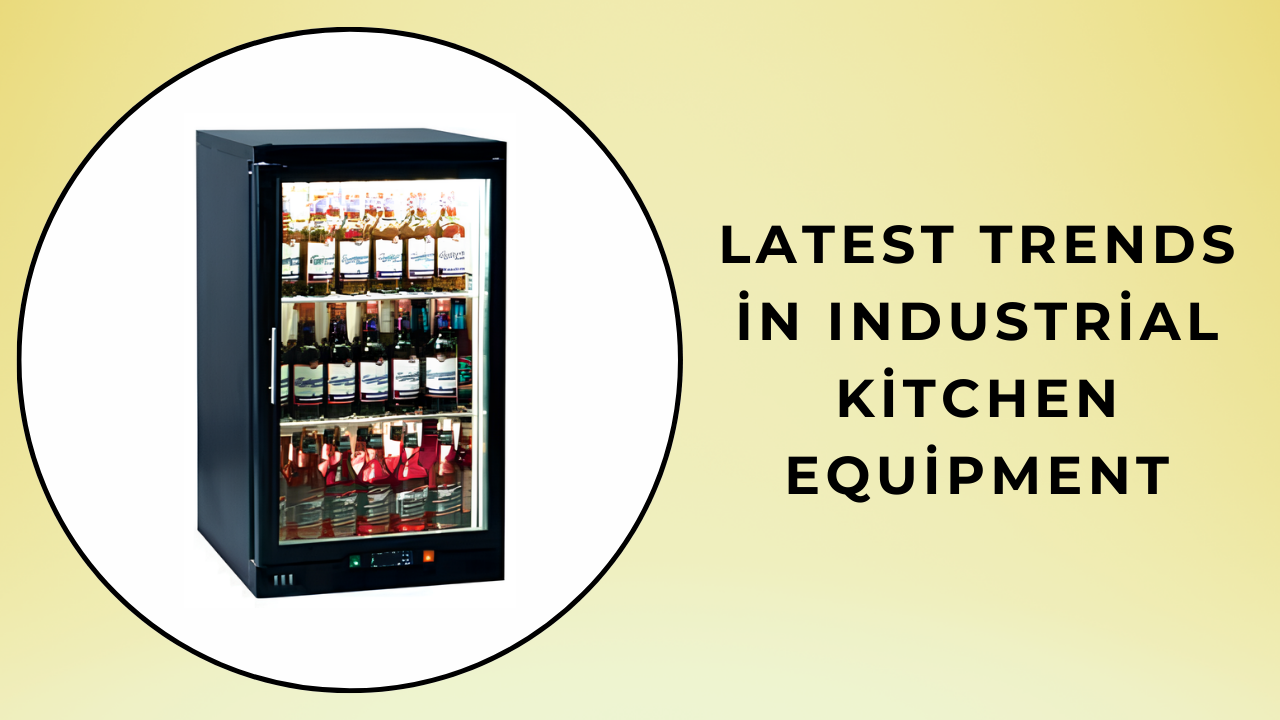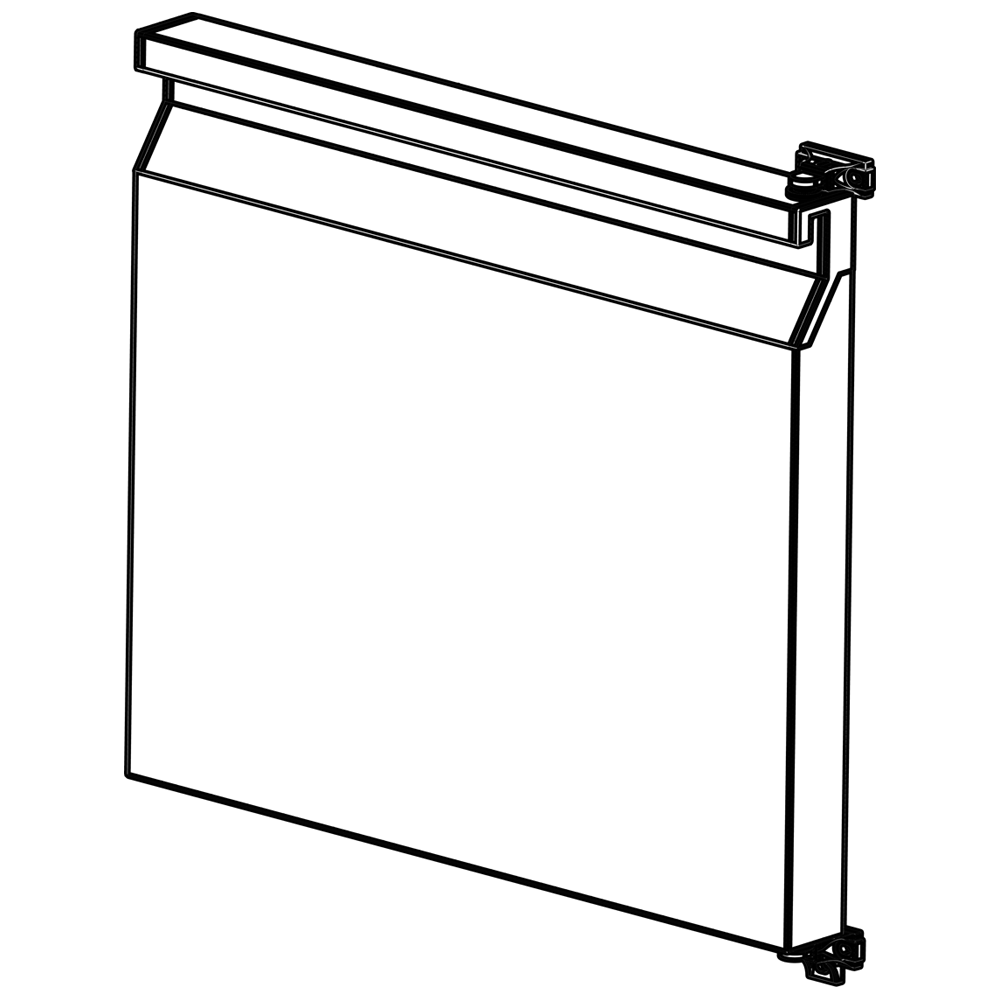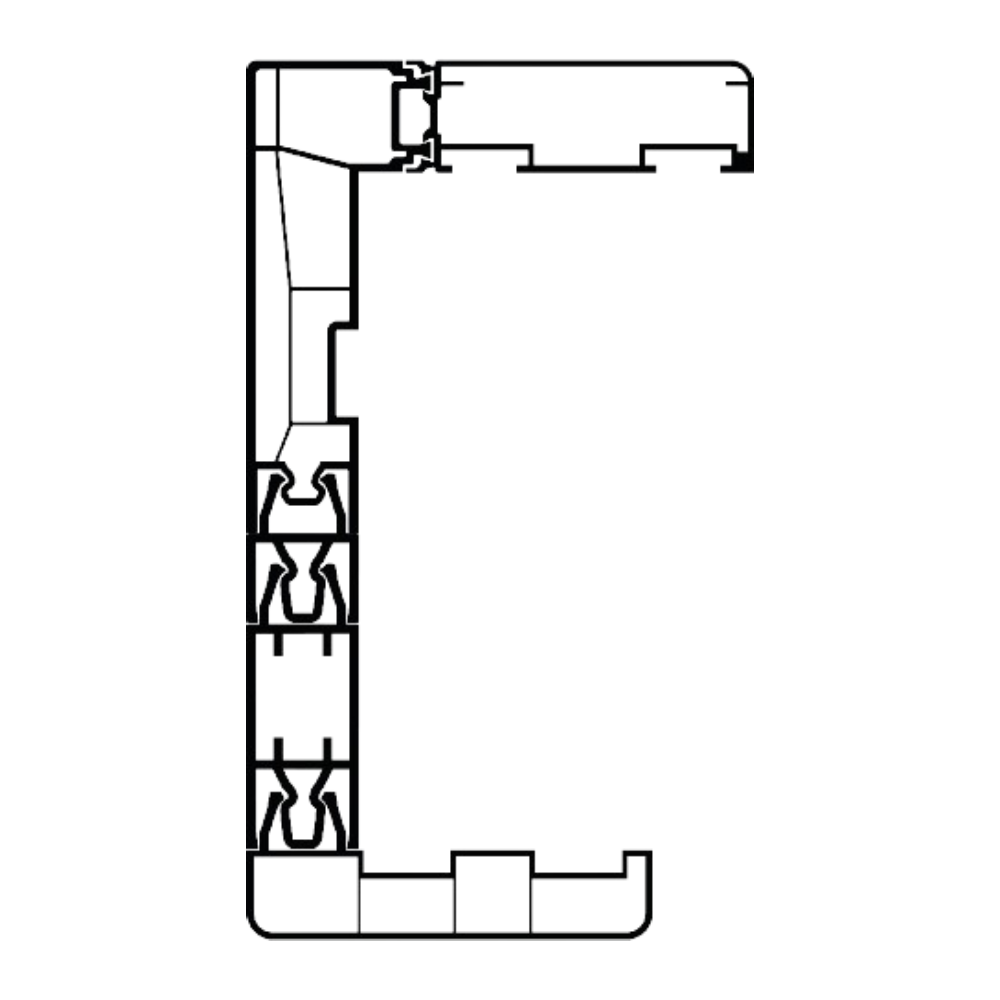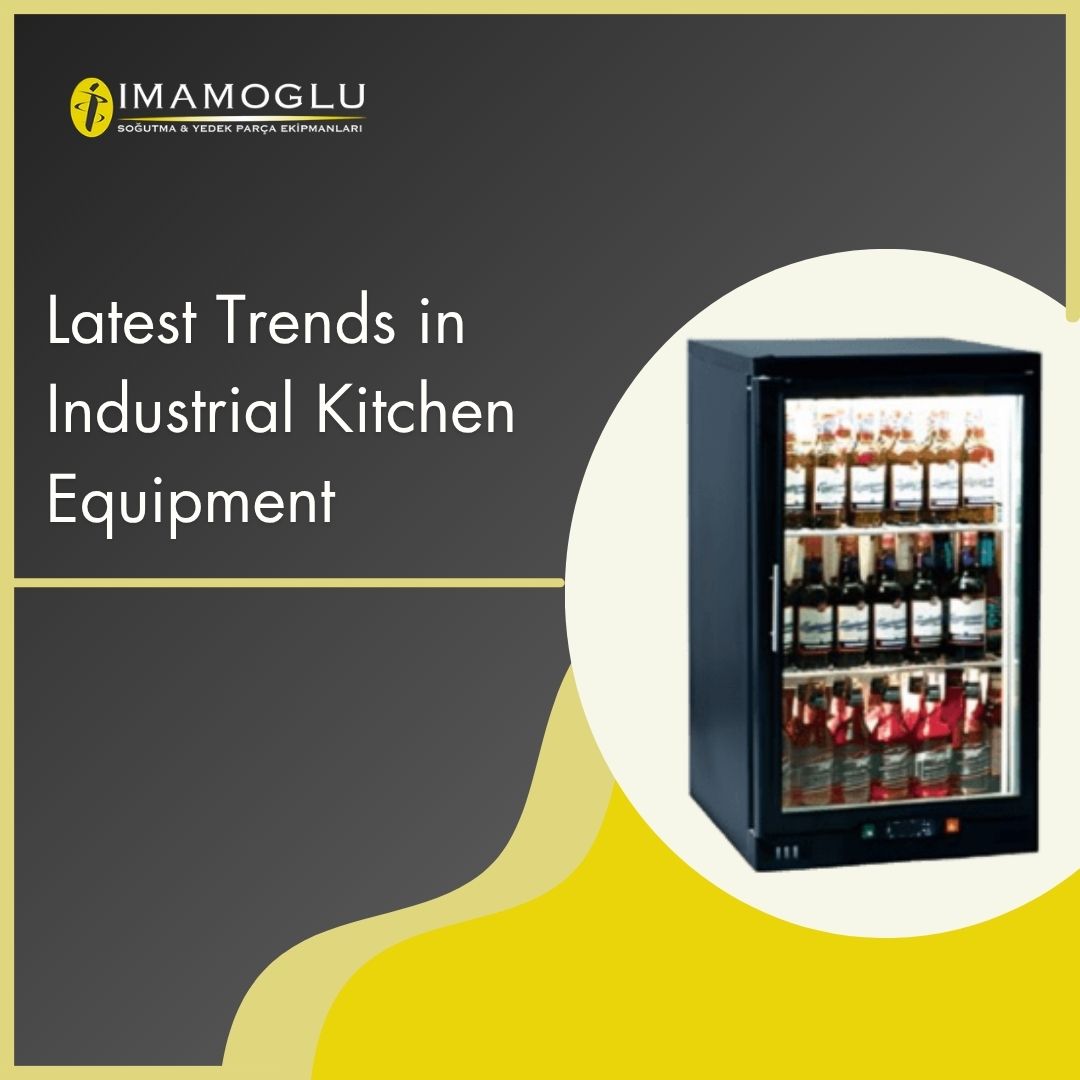Latest Trends in Industrial Kitchen Equipment
What technological developments have come to the fore in industrial kitchen equipment in recent years?
In recent years, digitalization and smart technologies have come to the fore in industrial kitchen equipment. Smart appliances offer great advantages in optimizing kitchen processes, saving energy and increasing food safety. For example, smart ovens can automatically adjust to specific recipes, while integrated sensors constantly monitor the internal temperature of dishes, ensuring perfect cooking results. IoT (Internet of Things) applications allow devices to be controlled remotely and their performance monitored. Thanks to this technology, equipment malfunctions can be detected and intervened immediately, thus providing an uninterrupted service. Energy efficient appliances both reduce costs and offer the opportunity to run an environmentally friendly kitchen. Finally, modular equipment designs allow kitchen space to be used more efficiently and customized to needs.
What role does sustainability play in industrial kitchen equipment?
Sustainability has become an important factor in the design and use of industrial kitchen equipment today. Equipment made from environmentally friendly materials reduces the carbon footprint by consuming less energy. In addition, water-saving systems combine with solutions that minimize food waste to create a sustainable kitchen environment. For example, while energy-efficient refrigerators and ovens consume less energy with high performance, it is possible to keep food waste under control with automatic feeding systems. Sustainable equipment not only helps businesses reduce costs but also becomes attractive to environmentally conscious customers. Using environmentally friendly packaging and recyclable materials helps businesses achieve their sustainability goals. An understanding of sustainability requires taking into account not only the performance of industrial kitchen equipment, but also its social and environmental impact.
Why have smart kitchen devices become so popular?
Smart kitchen devices have gained great popularity in recent years thanks to the convenience and efficiency increases they offer. These devices allow users to remotely control, adapt to recipes and receive real-time data thanks to an internet connection. For example, smart stoves and ovens can automatically adjust cooking times and temperatures by uploading recipes from users' smartphones. This feature saves time and ensures that the food is cooked perfectly. These energy-efficient appliances make kitchen operations more sustainable. Smart sensors provide instant information about the status of the equipment, detecting maintenance needs in a timely manner and thus helping business owners prevent possible malfunctions. Smart kitchen devices improve the quality of life of users and make the kitchen experience more enjoyable.

Why is modular kitchen equipment preferred?
Modular kitchen equipment is preferred by offering businesses flexibility and customization opportunities. Unlike traditional kitchen equipment, modular systems consist of different components and can be customized according to needs. This allows businesses to use their existing space more efficiently and expand easily when they grow. For example, as a restaurant's menu changes, equipment can easily be renewed or added. Modular equipment offers better ergonomics, reducing the workload of employees and speeding up the workflow. Cleaning and maintenance processes also become easier; Each module can be cleaned and maintained independently. Modular systems give users freedom in design while also offering the ability to quickly respond to the needs of the business. Modular kitchen equipment both increases functionality and improves user experience.
How to ensure energy efficiency in industrial kitchen equipment?
Energy efficiency is an important issue in the design and use of industrial kitchen equipment. First of all, choosing energy efficient devices helps businesses reduce their costs. For example, refrigerators and ovens with A++ energy class offer high performance while consuming less energy. Correct placement and regular maintenance of equipment is critical for energy saving. Removing obstacles that block the airflow of devices allows cooling and heating processes to work more efficiently. Intelligent control systems prevent unnecessary energy consumption by optimizing the use of devices. Devices that monitor food temperature using innovative technologies and make automatic adjustments when necessary increase energy savings. Providing energy efficiency contributes to both reducing costs and environmental sustainability.
Which industrial kitchen equipment is important for food safety?
Food safety is one of the top priorities in industrial kitchens, and therefore the selection and use of some equipment is of great importance. First, refrigeration systems are critical to ensuring foods are stored at appropriate temperatures. Smart refrigerators, which constantly monitor food temperature and make adjustments when necessary, are a great solution for improving safety. Sanitation equipment is essential to ensure hygiene standards. In particular, dishwashers and cleaning systems prevent cross-contamination, preserving food quality. Finally, cooking equipment is important for cooking foods at appropriate temperatures and times; This prevents foodborne diseases. Following best practices in terms of food safety and choosing the right equipment both increases the reputation of businesses and ensures customer satisfaction.
What is the role of data analytics in industrial kitchens?
Data analytics has become an important tool to optimize work processes and increase performance in industrial kitchens. Data obtained from kitchen equipment makes it possible to analyze performance and increase operational efficiency. For example, thanks to energy consumption data, it can be determined which equipment consumes more energy and improvements can be made accordingly. Making menu arrangements according to customer demands reduces food waste and reduces costs. Data analytics also supports food safety and quality control processes; In this way, possible problems can be detected immediately by collecting information such as which products were stored or cooked under what conditions. Data analytics helps businesses gain a competitive advantage by enabling industrial kitchens to be managed more efficiently and effectively.
Which industrial kitchen equipment is more preferred recently?
Recently, the demand for industrial kitchen equipment equipped with energy efficiency and smart technologies has increased. For example, energy-saving smart refrigerators both reduce costs and offer an environmentally friendly approach. Smart ovens provide perfect cooking results by automatically adjusting recipes. Modular kitchen equipment has gained popularity due to its ability to optimize space utilization and offer businesses customization opportunities. In addition, automatic cooking systems and high-capacity industrial stoves are preferred especially for restaurants and catering services. Devices that emphasize hygiene and food safety meet the needs of businesses by facilitating sanitation and cleaning processes. These equipment stand out in industrial kitchens in terms of both functionality and performance.
What should be considered in the maintenance of industrial kitchen equipment?
A few important points need to be taken into consideration in the maintenance of industrial kitchen equipment. First of all, creating regular maintenance programs increases the performance of equipment and extends its life. Maintenance of the devices in accordance with the user manuals prevents possible malfunctions. Carrying out cleaning operations correctly and regularly not only ensures hygiene standards, but also increases the efficiency of the equipment. Regular checking of filters, seals and other parts allows the business to operate without interruption. In addition, choosing expert technicians in maintenance processes ensures that the equipment is repaired correctly and their performance is increased. Regular maintenance and cleaning of industrial kitchen equipment increases the efficiency and safety of businesses and provides cost savings in the long term.
Why do the prices of industrial kitchen equipment vary so much?
Prices of industrial kitchen equipment vary depending on a number of factors. First of all, the quality, brand and features of the equipment have a direct impact on the price. Devices made of high-quality materials and equipped with smart technologies generally have higher price tags. Although energy-efficient equipment requires a higher initial investment, it provides cost savings in the long run. Area of use and functionality are other important factors that affect pricing. For example, high-capacity equipment designed specifically for commercial kitchens may be more expensive than standard appliances. Demand and supply situation in the market are also factors that affect price changes. When all these factors are taken into consideration, it is better understood why the prices of industrial kitchen equipment vary so much.
Why is ergonomics important in industrial kitchens?
Ergonomics in industrial kitchens is of great importance for the health of employees and work efficiency. Ergonomic design prevents physical discomfort by reducing the workload of employees. In particular, the placement of frequently used equipment in the kitchen positively affects the mobility and workflow of employees. The height, accessibility and placement of equipment speeds up work processes by reducing employee time loss. Ergonomic equipment minimizes the risks of injury in the workplace; This both increases employee satisfaction and contributes to the efficiency of the business. Ergonomic kitchen design helps comply with occupational health and safety regulations by meeting occupational safety standards. Ergonomics in industrial kitchens is a critical factor for both the health of employees and the overall performance of the business.
How will the future of industrial kitchen equipment be shaped?
The future of industrial kitchen equipment will be shaped in line with technology, sustainability and customer expectations. First of all, the integration of smart technologies and automation systems will make kitchen processes more efficient. Smart devices will provide performance improvements with real-time data analysis while saving energy. Adopting environmentally friendly materials and sustainable practices will provide a more conscious approach by reducing the environmental impact of industrial kitchens. Rising food safety and hygiene standards will be at the forefront of device design; This will lead to the development of next generation sanitation systems. Innovative solutions for customer experience will contribute to businesses gaining competitive advantage. All these developments will enable industrial kitchen equipment to become smarter, more sustainable and user-friendly.









